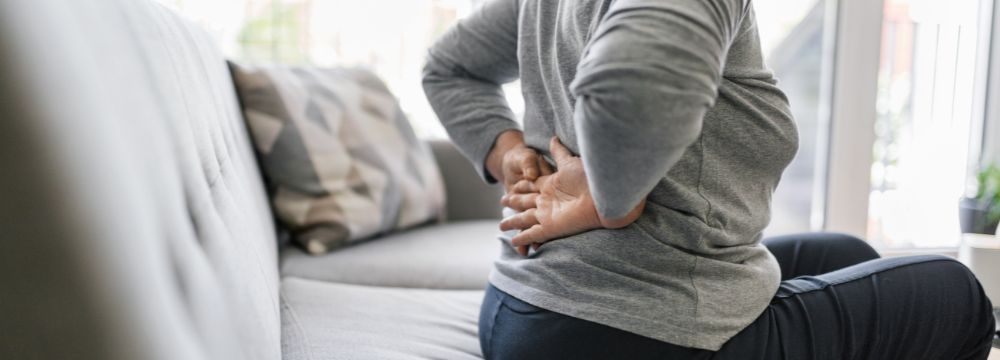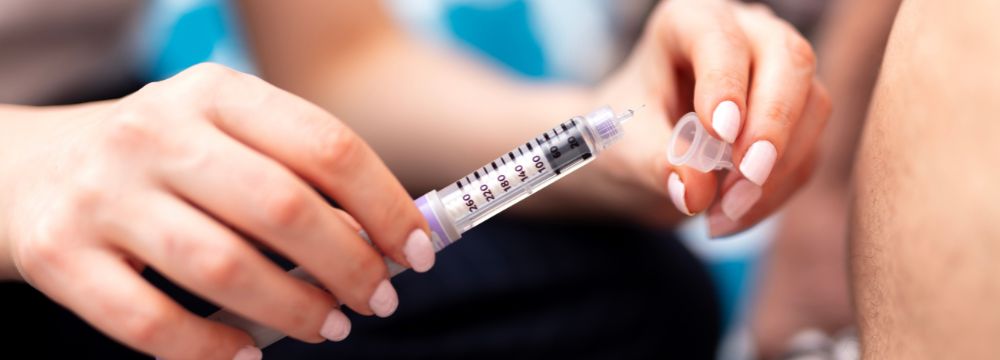Back Pain – Seemingly Unusual Post Op Symptoms of Bariatric Surgery, Part One

When we tell patients that back pain after bariatric surgery is routine, they often don’t understand why. After all, it stands to reason that if you’re losing weight, especially a significant amount of weight, the pressure on your joints and back should be minimized, and you shouldn’t have any pain at all (or any pain you did have should vanish).
This is not the case after bariatric surgery, however. After surgery, the body must make some significant adjustments. While you may feel lighter and bodily functions are working slightly better, the ligaments and tendons around the body are trying to adapt. As patients lose weight, their weight balance can shift quite a bit. Plus, we can never be sure where the excess fat will come off first. We know that the body is adaptable and will eventually get there. However, most patients should expect a few hiccups on the way.
The Bariatric Surgery & Weight Loss Landscape In 2024 & 2025

The past couple of years have been exciting, with a renewed focus on weight loss and addressing the ever-present obesity epidemic. From new procedures to weight loss medication and tools, there has been no shortage of choices for patients looking to lose weight. In this article, we analyze a few of the most important newly approved procedures and medicines in 2024, understand a little more about them, and consider what they mean for patients looking for more sustainable weight loss.
The Best Way to Run During Your Weight Loss Journey

No matter how you’re losing weight – surgery, diet, exercise, or weight loss medications- exercises are crucial to hitting your goals and ultimately maintaining that weight loss once you reach them. However, many patients are concerned about which exercises may be best for them, and the question is justified. Importantly, this applies particularly to running, which offers excellent lower-body toning, cardio, and calorie burn but can also be very strenuous on the legs and joints, especially when patients carry extra weight. So, what are the best ways to run, and how do we ensure we don’t injure ourselves?
Common Nutritional Deficiencies After Bariatric Surgery

In a practice that has treated thousands of bariatric patients, we have seen it all. However, one of the most problematic complications we see after bariatric surgery is when patients don’t stay abreast of their nutritional requirements. Patients lose weight because of a significantly restricted caloric intake, meaning they will consume fewer vitamins and minerals. Some vitamins and minerals are more affected than others. As such, we work with our patients to create a supplementation plan based on the procedure performed and the results of their blood panels taken periodically after surgery.
Three Critical Factors to Maximize Weight Loss

Any patient considering or having had bariatric surgery or who starts on GLP-1 agonists like Wegovy or Zepbound wants to know how to maximize their weight loss. And there certainly are ways. But before diving deeper, remember that no matter what weight loss modality is used, there is no substitute for hard work to achieve and maintain weight loss results. Bearing that in mind, answering this question is difficult, but many factors influence weight loss. Further, each of us is different, and the reasons for gaining weight and the best way to lose it may differ slightly between us. However, there are some tried and true ways to help ensure you lose the most weight, three of which we will discuss in this article.
Getting Off GLP-1s – Having a Game Plan

If you’ve been using GLP-1 medications like semaglutide (Ozempic, Wegovy, Mounjaro, or Zepbound), you might be wondering what it looks like to stop taking them. Maybe you’ve reached your health goals or are dealing with side effects that make you want to reconsider your options. Whatever the reason, getting off GLP-1 medications is a big decision that requires careful planning.
These medications are often prescribed to help manage type 2 diabetes or assist with weight loss. They mimic a hormone in your body that helps regulate blood sugar levels and appetite. But just like starting the medication was a big step, stopping it should be done thoughtfully and with guidance from your healthcare provider.
Stress and The Vicious Cycle of Obesity

In a world where stress is as common as the air we breathe, the impact on obese individuals is undeniable. The vicious cycle of obesity often starts with stress, triggering unhealthy eating habits. The added weight leads to a sedentary lifestyle and further worsening physical limitations. The person living with obesity begins to feel overwhelmed by even more stress. The cycle often continues until patients hit rock bottom or decide to address it comprehensively and aggressively through diet and exercise, weight loss medications, or bariatric surgery.
How Often Do I Have to Exercise to Lose Weight?

How and how often do we need to exercise? These are age-old questions that nobody seems to have a definitive answer to, as evidenced by the thousands of social media influencers that have their take. If you go online, you’ll find many so-called experts contradicting each other and even themselves. Unfortunately, the Internet is rife with misinformation, and we must extract the truth and use it to our advantage.
Your Expectations: What Bariatric Surgery Is and Isn’t
 As you have probably inferred from the above, bariatric surgery is an option for patients living with obesity and who may not be able to lose enough weight with diet and exercise or weight loss medications alone. While surgery may seem extreme, bariatric surgery isalso very safe, with complication rates right around those of a routine gallbladder removal.
As you have probably inferred from the above, bariatric surgery is an option for patients living with obesity and who may not be able to lose enough weight with diet and exercise or weight loss medications alone. While surgery may seem extreme, bariatric surgery isalso very safe, with complication rates right around those of a routine gallbladder removal.
How The Small Intestine Can Start Producing Ghrelin and What To Do

Several bariatric surgeries, especially the gastric sleeve, offer benefits in addition to the mechanical shrinking of the gastric pouch/stomach. These secondary benefits often excite patients the most and represent an additional layer of weight loss potential. In the case of the gastric sleeve, when the outer portion of the stomach is removed from the body, the central hunger hormone production center, known as the fundus, comes out with it. The lack of ghrelin reduces appetite and cravings, which helps patients feel less hungry and ultimately lose weight.

